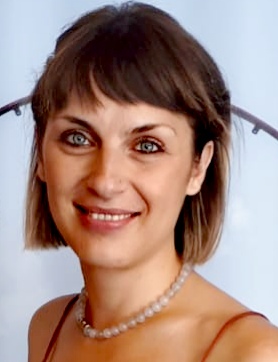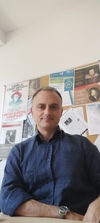Studying at the University of Verona
Here you can find information on the organisational aspects of the Programme, lecture timetables, learning activities and useful contact details for your time at the University, from enrolment to graduation.
Academic calendar
The academic calendar shows the deadlines and scheduled events that are relevant to students, teaching and technical-administrative staff of the University. Public holidays and University closures are also indicated. The academic year normally begins on 1 October each year and ends on 30 September of the following year.
Course calendar
The Academic Calendar sets out the degree programme lecture and exam timetables, as well as the relevant university closure dates..
| Period | From | To |
|---|---|---|
| I semestre (Lingue e letterature straniere) | Sep 26, 2022 | Dec 23, 2022 |
| II semestre (Lingue e letterature straniere) | Feb 13, 2023 | May 27, 2023 |
| Session | From | To |
|---|---|---|
| ESAMI LINGUE - sessione invernale | Jan 9, 2023 | Feb 11, 2023 |
| ESAMI LINGUE - sessione estiva | May 29, 2023 | Jul 22, 2023 |
| ESAMI LINGUE - sessione autunnale | Aug 28, 2023 | Sep 23, 2023 |
| Session | From | To |
|---|---|---|
| LAUREE LINGUE - sessione autunnale (a.a. 2021-2022) | Nov 7, 2022 | Nov 12, 2022 |
| LAUREE LINGUE - sessione straordinaria (a.a. 2021-2022) | Mar 31, 2023 | Apr 6, 2023 |
| LAUREE LINGUE - sessione estiva (a.a. 2022-2023) | Jul 10, 2023 | Jul 15, 2023 |
Exam calendar
Exam dates and rounds are managed by the relevant Foreign Languages and Literatures Teaching and Student Services Unit.
To view all the exam sessions available, please use the Exam dashboard on ESSE3.
If you forgot your login details or have problems logging in, please contact the relevant IT HelpDesk, or check the login details recovery web page.
Should you have any doubts or questions, please check the Enrollment FAQs
Academic staff
Study Plan
The Study Plan includes all modules, teaching and learning activities that each student will need to undertake during their time at the University.
Please select your Study Plan based on your enrollment year.
1° Year
| Modules | Credits | TAF | SSD |
|---|
1st foreign language2nd foreign language1st foreign literature2nd foreign literature1 module between the following2° Year activated in the A.Y. 2023/2024
| Modules | Credits | TAF | SSD |
|---|
1st foreign language2nd foreign language1st foreign literature2nd foreign literature3° Year It will be activated in the A.Y. 2024/2025
| Modules | Credits | TAF | SSD |
|---|
1st foreign language1st foreign literature2nd foreign language2nd foreign literature1 module among the following (philology related to 1st or 2nd foreign language)1 module between the following| Modules | Credits | TAF | SSD |
|---|
1st foreign language2nd foreign language1st foreign literature2nd foreign literature1 module between the following| Modules | Credits | TAF | SSD |
|---|
1st foreign language2nd foreign language1st foreign literature2nd foreign literature| Modules | Credits | TAF | SSD |
|---|
1st foreign language1st foreign literature2nd foreign language2nd foreign literature1 module among the following (philology related to 1st or 2nd foreign language)1 module between the following| Modules | Credits | TAF | SSD |
|---|
Legend | Type of training activity (TTA)
TAF (Type of Educational Activity) All courses and activities are classified into different types of educational activities, indicated by a letter.
Spanish literature 3 (2024/2025)
Teaching code
4S002948
Teacher
Coordinator
Credits
9
Language
Spanish
Scientific Disciplinary Sector (SSD)
L-LIN/05 - SPANISH LITERATURE
Period
I semestre (Lingue e letterature straniere) dal Sep 23, 2024 al Dec 21, 2024.
Courses Single
Authorized
Learning objectives
The main formative aim of the teaching within the degree course on Modern Languages and Literatures is to make the students acquirea high-level competence in critically approaching the classics of Spanish literature in depth. The results expected from their learning are the following: -Knowledge and heightened understanding: in-depth knowledge of the Spanish literature of the scheduled period: historical context, texts, genres, movements, and authors dealt with in the taught module, especially with reference to the themes of cultural interchange and to the formal differentiations of the literary phenomena. - “Applied” knowledge and heightened understanding: the students will acquire the necessary methodologies for putting them to use in working on literary texts within a historical and comparative perspective and in interpreting complex texts and implied meanings; they will have to be able to express themselves in fluent Spanish, arguing complex topics in a clear, ordered, and detailed way.
Prerequisites and basic notions
Knowledge of the Spanish language. Basic knowledge of geography, history and Spanish literature
Program
General part: Spanish literature in the Middle Ages: literary history and cultural history. Planned topics: - History: main events from the Romanization of the Iberian Peninsula to the end of the Middle Ages. The Reconquista: between history, literature and myth - Cultural context: the plural peninsula - Literature: from its origins to the end of the Middle Ages. Monographic part: the epic: the Poem of Fernán González: the rewriting of a 'lost' epic poem. Teaching methods: teaching will be held in Spanish through frontal teaching, case studies and e-learning. The teaching will be active on the university's e-learning platform, where some mandatory content will be uploaded (lesson texts, handouts, etc.) and optional in-depth materials. This program is also valid for non-attending students who, however, are advised to contact the teacher during office hours. An individual reception service managed by the teacher is available throughout the academic year, at the times indicated on the web pages (without the need to make a specific appointment). Non-attending students are asked to contact the teacher in charge of the course.
Didactic methods
Presential classes and frontal teaching
Learning assessment procedures
The exam takes place in oral form in Spanish (chosen by the student in Italian for the bibliography in Italian) and consists of an interview aimed at verifying the depth and breadth of the knowledge acquired, the analytical and argumentative ability, the ability to connect knowledge and language skills in a systemic form. The topics being tested concern the entire program. A possible informal and optional written test regarding the topics of history and history of literature (open questions and multiple choice tests) will be decided and established during the course. For those who obtain a positive result in this test, the oral exam will focus solely on the commentary on the texts.
Evaluation criteria
The historical-geographical, historical-literary knowledge, the ability to analyze and interpret the literary text, the property of language and the exhibition skills will be evaluated.
Criteria for the composition of the final grade
Unique: 30/30, exam passed starting from 18/30
Exam language
spagnolo
Sustainable Development Goals - SDGs
This initiative contributes to the achievement of the Sustainable Development Goals of the UN Agenda 2030. More information on sustainability

Type D and Type F activities
Nei piani didattici di ciascun Corso di studio è previsto l’obbligo di conseguire un certo numero di CFU di tipologia D e di tipologia F.
CFU D (attività a scelta dello studente)
I CFU D possono essere acquisiti mediante:
- insegnamenti non obbligatori nel proprio piano didattico (previa approvazione del Presidente del Collegio didattico per insegnamenti non selezionabili in autonomia)
- attività accreditate dal Collegio didattico
- competenze linguistiche (diverse o ulteriori) rispetto a quelle obbligatorie
- tirocini o stage
- TALC (competenze trasversali).
Competenze trasversali TALC
Nota bene: i corsi TALC sono riconosciuti solo come CFU D.
Il numero di CFU D va calcolato complessivamente sull’intero triennio/biennio e non è legato all'annualità.
CFU F
I CFU F sono solitamente relativi ad abilità informatiche, competenze linguistiche, stage e tirocini e ulteriori attività formative accreditate in questa tipologia dal Collegio Didattico.
Nel corso di laurea in Lingue e Letterature Straniere sono previste le seguenti tipologie:
- 3 CFU per terza lingua (livello B1)
- 3 CFU per informatica.
Le competenze informatiche possono essere acquisite attraverso:
- il superamento della prova pratica presso le aule informatiche di Ateneo,
- la frequenza dei corsi attivati da scuole e centri accreditati dall’AICA (Associazione Italiana per l’Informatica e il Calcolo Automatico) o riconosciuti dalla Provincia e dalla Regione e superamento della relativa prova finale. Le domande per il riconoscimento delle competenze informatiche acquisite precedentemente vengono esaminate dalla Commissione per il riconoscimento delle Competenze Informatiche.
Lo studente ha comunque la possibilità di effettuare esperienze di stage e tirocini che però vengono riconosciuti all’interno dei crediti a scelta libera (CFU D).
To discover all the teaching activities accredited by the foreign teaching college click here
Career prospects
Module/Programme news
News for students
There you will find information, resources and services useful during your time at the University (Student’s exam record, your study plan on ESSE3, Distance Learning courses, university email account, office forms, administrative procedures, etc.). You can log into MyUnivr with your GIA login details: only in this way will you be able to receive notification of all the notices from your teachers and your secretariat via email and also via the Univr app.
Student login and resources
Gestione carriere
Assegnazione tutore
Attività accreditate D/F
Calendario didattico dettagliato
Cambio lingua curriculare
Competenze informatiche
Competenze linguistiche (prima e seconda lingua)
Competenze linguistiche in triennale (terza lingua CFU F)
Compilazione del piano didattico
Corso di Lingua portoghese
Erasmus+ e altre esperienze all'estero
Linguistic training CLA
Presentazione dei corsi di studio e Open day
Graduation
Saperi minimi
Stage e tirocini
Le attività di stage sono finalizzate a far acquisire allo studente una conoscenza diretta in settori di particolare interesse per l’inserimento nel mondo del lavoro e per l’acquisizione di abilità professionali specifiche.
Le attività di stage sono svolte sotto la diretta responsabilità di un singolo docente presso studi professionali, enti della pubblica amministrazione, aziende accreditate dall’Ateneo veronese.
I crediti maturati in seguito ad attività di stage saranno attribuiti secondo quanto disposto nel dettaglio dal “Regolamento d’Ateneo per il riconoscimento dei crediti maturati negli stage universitari” vigente.
- Tutte le informazioni in merito agli stage per futuri studenti sono disponibili alla pagina Stage e tirocini.
- Tutte le informazioni in merito agli stage per studenti iscritti sono pubblicate in MyUnivr - come fare per - stage e tirocini.
- Tutte le informazioni in merito agli stage per le aziende sono disponili alla pagina Stage e tirocini per azienze.
Ulteriori informazioni al seguente link https://www.univr.it/it/i-nostri-servizi/gestione-carriere-studenti-lingue-e-letterature-straniere/stage-e-tirocini-lingue-e-letterature-straniere

 stefano.aloe@univr.it
stefano.aloe@univr.it
 +39 045802 8409
+39 045802 8409















































